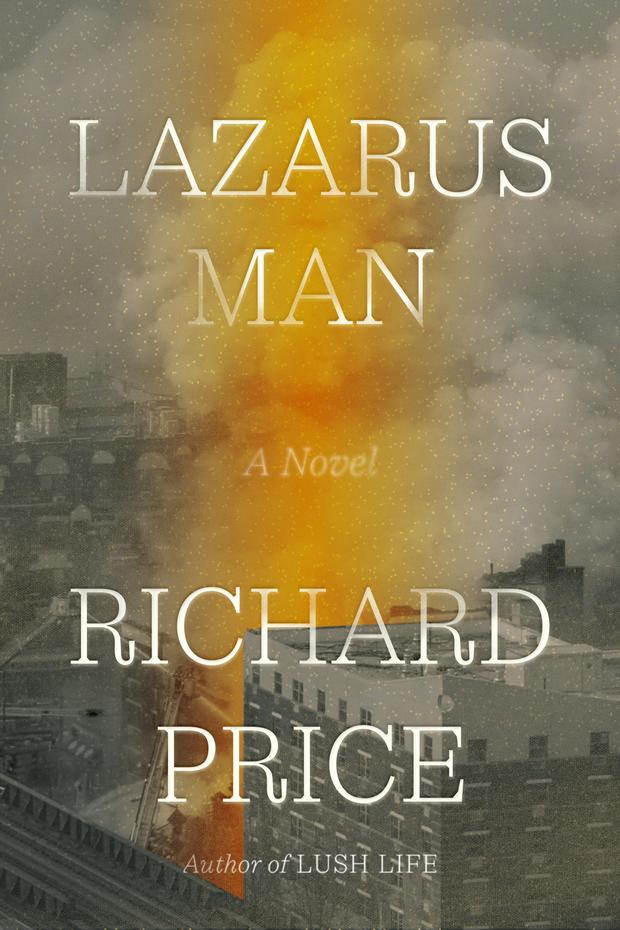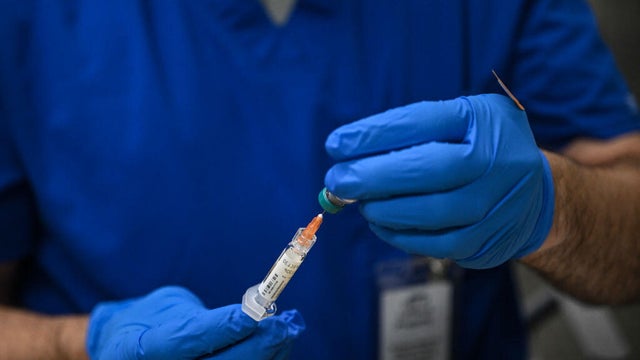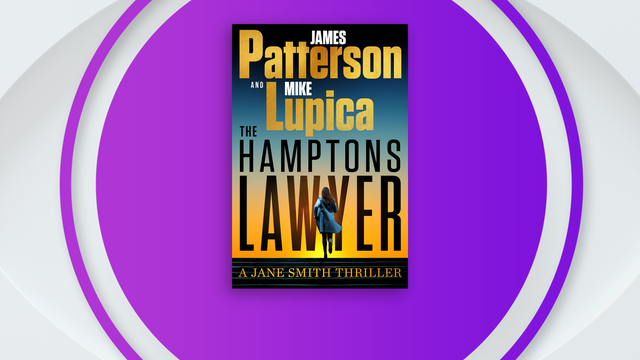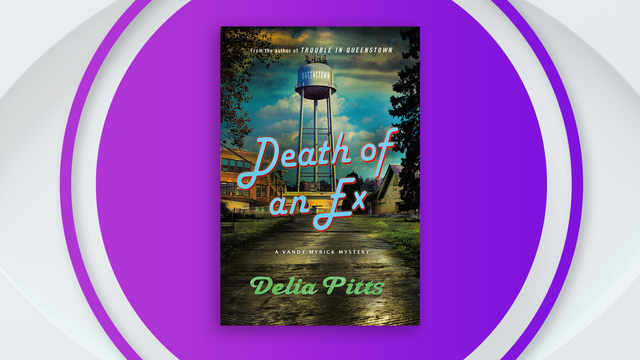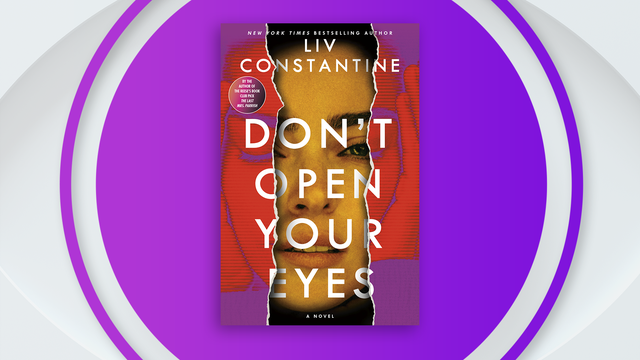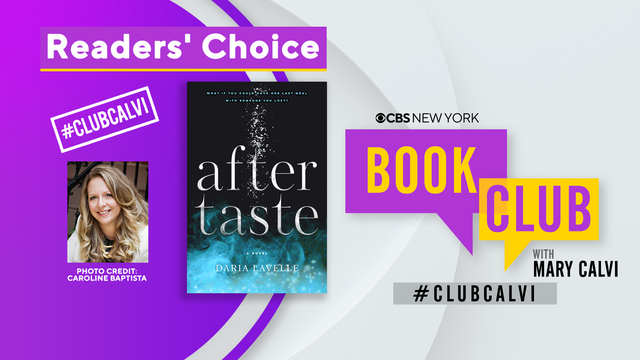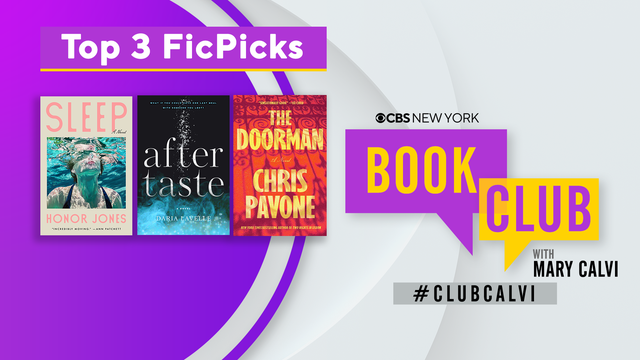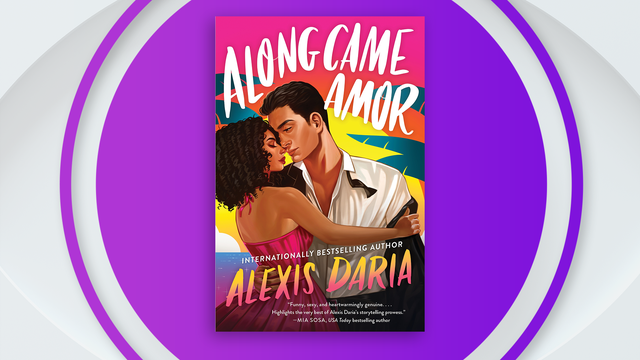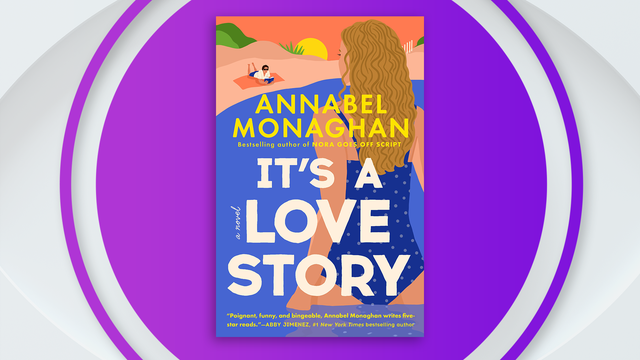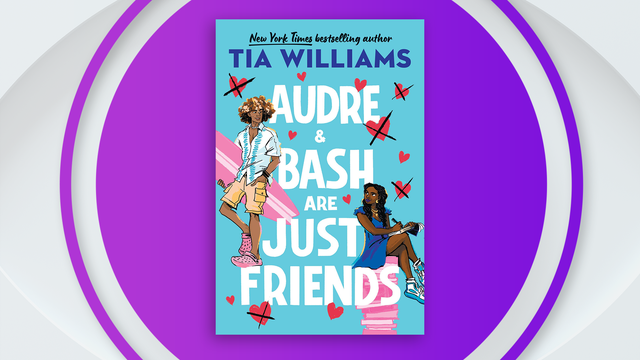"Lazarus Man" by Richard Price is a bonus read from the CBS New York Book Club
Please consider joining our Facebook group by CLICKING HERE.
Find out more about the books below.
"Lazarus Man," a bonus read from Club Calvi, is one of the most anticipated books of 2024
Richard Price, the author of "The Wanderers," "Clockers," "Freedomland," and "Lush Life," is back with his first novel in nearly 10 years. Price's new book "Lazarus Man," is being released on Tuesday, November 12.
He told Mary Calvi he wrote the book after a tragic event in 2014, a deadly explosion in East Harlem. "I lived about a dozen blocks north of this building collapse," Price said. "I could feel the vibrations 12 blocks away. It's just my reflex. I went down there to see what happened. I just absorbed the whole scene, the whole chaos."
Price focuses on four characters in "Lazarus Man. "One guy is a funeral director," Price says, "And he's going broke. He hears the boom. He goes right there to make money. Another guy lives directly across the street. He runs down with his camera and just starts photographing everything and videotaping everything. Detective Mary Roe, her assignment there is to find who is accounted for and who is unaccounted for in the building. The main character is Lazarus. He's a guy who is discovered some 36 hours after everybody thinks there's no living anything."
Price has also written screenplays, including "Sea of Love" and "The Color of Money" which was nominated for best adapted screenplay in 1986. However he admits he doesn't like writing. "Once you write, once you break the line of the page, it's like a levitation act for me because you are not yourself anymore. You have to be these people."
You can read an excerpt from "Lazarus Man" and purchase the book below.
The CBS New York Book Club focuses on books connected to the Tri-State Area in their plots and/or authors. The books may contain adult themes.
________________________________________________________________________________________________________
"Lazarus Man" by Richard Price
From the publisher: East Harlem, 2008. In an instant, a five-story tenement collapses into a fuming hill of rubble, pancaking the cars parked in front and coating the street with a thick layer of ash. As the city's rescue services and media outlets respond, the surrounding neighborhood descends into chaos. At day's end, six bodies are recovered, but many of the other tenants are missing.
Anthony Carter—whose miraculous survival, after being buried for days beneath tons of brick and stone, transforms him into a man with a message and a passionate sense of mission.
Felix Pearl—a young transplant to the city, whose photography and film work that day provokes in this previously unformed soul a sharp sense of personal destiny.
Royal Davis—owner of a failing Harlem funeral home, whose desperate trolling of the scene for potential "customers" triggers a quest to find another path in life.
And Mary Roe—a veteran city detective who, driven in part by her own family's brutal history, becomes obsessed with finding Christopher Diaz, one of the building's missing.
Richard Price lives in New York City
"Lazarus Man" by Richard Price (ThriftBooks) $22
Excerpt: "Lazarus Man" Richard Price
PART ONE:
ANGELS
SPRING 2008
It was one of those nights for Anthony Carter, forty-two, two years unemployed, two years separated from his wife and stepdaughter, six months into cocaine sobriety and recently moved into his late parents' apartment on Frederick Douglass Boulevard, when to be alone with his thoughts, alone with his losses, was not survivable, so he did what he always did—hit the streets, meaning hit the bars on Lenox, one after the other, finding this one too ghetto, that one too Scandinavian-tourist, this one too loud, that one too quiet, on and on, taking just a few sips of his drink in each one, dropping dollars and heading out for the next establishment like an 80-proof Goldilocks, thinking maybe this next place, this next random conversation would be the trigger for some kind of epiphany that would show him a new way to be, but it was all part of a routine that never led him anywhere but back to the apartment, this he knew, this he had learned over and over, but maybe-this-time is a drug, you-never-know is a drug, so out the door he went.
* * *
One of the bars he gravitated to now and then was Beso, a small slightly grimy spot on Lenox off 123rd, the clientele a mixed bag of old-timers, younger arrivistes to the area both Black and white, and single straight women who felt at ease in here because of its vaguely gay vibe …
On this night, the place was quiet; just two model-handsome young men talking to each other at the short end of the bar and a softly plump light-skinned younger woman, straw-sipping something peach-colored, who couldn't stop looking at them.
The men only had eyes for each other, and small-talking to the bartender, as he already knew, was like chatting up a vending machine.
One of the problems he had with living alone was all that talking to himself, talking without speaking and occasionally deluding himself into thinking that he was actually talking to someone else.
He ordered his drink then set himself up three stools away from her.
"I went there too," he said, chin-tilting to the Fordham Rams logo on her pullover.
"What?"
"Fordham. I went…"
"No, this is my cousin's sweater," she said looking past him.
"What year did he graduate?"
"She. Didn't."
"Me neither, I thought there were better things to do with my time." Anthony just saying it to say it.
"Like what."
"What?" Momentarily unable to recall what he said last.
Then, "I wish I could remember." Then, "Anthony."
"Andrea." Saying her name as if she wasn't sure of it.
Either because she just didn't care, or was too naive to clock that they were a couple, she threw a smile to the men in the corner, one of them politely smiling back before returning to his conversation.
With the talk going nowhere, Anthony, as he sometimes wound up doing, concocted a more interesting history for himself.
"After Fordham, I went to a clown college down in Florida."
"For real?"
"For real. But I had to drop out because I was too claustrophobic to get into that mini-car with all the others."
"What others?"
"The, you know, clowns?"
Then, looking at him for the first time since he sat down, "Tell me a joke."
"Clowns don't tell jokes," he said, thinking, I just did. And gave up.
* * *
Columbia, not Fordham. Both the high point and the beginning of the end for him; full boat academic scholarship, freshman track, chess team, then kicked out three months into his second year for dealing in the dorms.
Why.
It wasn't because he needed the money; his Mobile, Alabama, grandparents had made sure of that.
So, why.
A therapist suggested that as a Black student he might have subconsciously felt pressure to act out the role expected of him by the white students but that was bullshit. First of all, there were two other guys in his year who were also booted for dealing in the dorms and both of them were white.
Second, there were more Asians than Caucasians.
Third, his parents were both professionals and solidly middle-class.
Fourth, he was raised in as integrated and urbane an environment as could be found in New York, relatively at ease in the private schools he attended, with his racial rainbow of friends and in the social circles of his parents. Columbia was just a seamless continuation of all that went before.
And while he was on the subject, he thought for the multimillionth time in his life—Why does everything have to come down to race?
But then, as always, he answered his own question—Because it does.
"As a Black student…" When the therapist referred to him as that as opposed to what he was, a half-and-half, it rattled him. It wasn't that he didn't know that an eyedropper of Black meant Black but …
He was light-skinned and Caucasian-featured enough that, if he wanted to, he could pass back and forth at will.
It seemed to him that nearly every day of life at least one person, intrigued by the mystery of his features, asked him, "What are you?"
Most people preferred to interpret his mixed-race face as Latino, Mediterranean or Arab, a few going so far as to specifically guess Armenian, Israeli, Turkish but rarely the truth, because for the most part, either out of their own tribal discomfort or embarrassment or straight-up aversion to it they wanted him to be anything but.
Some even resisted that truth when he felt it necessary to share it in order to steer the conversation away from jokes starring Black people, or other s***** racial commentary.
Sometimes he preferred to present as white, other times as Black. Both were true, both were false. And both left him feeling like a spy in the world; a double agent inside a double agent. And both left him feeling psychically exhausted.
When the expulsion from Columbia came down, his mother, whose family owned a chain of funeral homes in Mobile and Birmingham, decided to let it be, but his father, an Italian Irish pugnacious race warrior who taught African American history and literature at various private high schools in Manhattan, tried, after Anthony had pleaded with him to drop it, to kick up dust by accusing Columbia of targeting minority students. But after going through the motions of an internal review, the school basically told the old man to tell his story walking and that was that.
In the end, after a few years of bouncing around from lesser college to lesser college while working here and there mostly as a men's shop retail salesman, he eventually received a BS in education. Over the years since, he had taught junior high school English in a few public schools until his last day three years ago when one of his ninth graders, not liking to be told to stop slow-dragging his chair every five minutes from one end of the room to the other, came up to his desk when he was grading papers and nearly brained him with his arm cast.
The lawsuit he filed against the board of ed was still pending.
But the worst thing that happened that same lousy year was when his stepdaughter had been accepted, minus any offer of financial aid, to the private school where his father taught at the time—there was no way he could have afforded the tuition—and he made the idiotic mistake of mentioning it to the Great Liberator himself who then promptly got into a war with his own administration, resulting in Grandpa losing his job.
The thing was, oddly or maybe obviously enough, when his mother, a passive and distant parent, died of a heart attack, he was shaken but not destroyed. But when his father, that bullying overlord of his life who gave him s*** for choosing to marry a white woman, died in a wee-hours one-car crash some months after losing his own teaching gig, Anthony completely fell apart; back into the powder, loss of family, loss of job after job after job—see powder—and he was still falling apart, on this night, and in this bar.
"What do you want," he said, unaware that the words had actually come out of his mouth.
Then again, Beso was bar number three.
"What do I want?" she shot back, not liking his tone.
"What?" he said, then, "No. Sorry. I was talking to myself," then, talking to her, "I was in Garvey Park last Sunday with a sketch pad because I heard about a regular open-air outreach church service for homeless people and, yeah…"
Anthony drifting a little again, seeing that Sunday crazy man again in his orange wraparound ski glasses and soiled hoodie, his holey blanket-cape, his ballooning left hand bound to the point of bulging by dozens of rubber bands.
"And I wound up talking to this one guy there, he called himself Chronicles Two, he kept asking me, 'What do you want.' Just pressing me, 'What do you want. What do you want…'
"I asked why he wanted to know, he says, 'You got that pad and pencil you're holding so I imagine you came to draw pictures of us but you haven't made move one with that thing and I been watching you for forty-five minutes, so what do you want.'"
"Ok…" Andrea listening to him for real now.
"Then he said, 'Let me tell you something, you look at me and see what you want to see but know this … Yes, I am homeless, yes, I'm on medication but I didn't lose my home, I just walked away from it because I need to be here for the people who need for me to be here.
"'And I have a real hard time making this scene, sleeping inside my rock and hiding from my enemies, but the fact of the matter is, right now you look more burned out than me so, what do you want.'"
"'What do you want,'" she murmured.
The men in the corner slowed their talk in order to listen in, the standoffish bartender too, busying himself cleaning clean glasses. Without looking up from his nursed drink, he could sense their attention and it made him feel of momentary substance.
"He says, 'You and me, we are men of responsibilities, you to yours, me to mine, and we can't never rest neither of us. You want to survive all that weight? The trick is to think less but without surrendering your God-given intelligence. Can you manage that? Because it's hard and the thing about time is you got a little less of it than you did yesterday.' So…" Anthony trailing off, the tale at its end.
A few minutes later, when she got up to leave, Andrea startled him by sliding her fingers over the back of his hand.
He'd relive that touch for years, but it wasn't what he was after.
Excerpted from Lazarus Man: A Novel, by Richard Price. Published by Farrar, Straus and Giroux, November 2024. Copyright © 2024 by Richard Price. All rights reserved.
